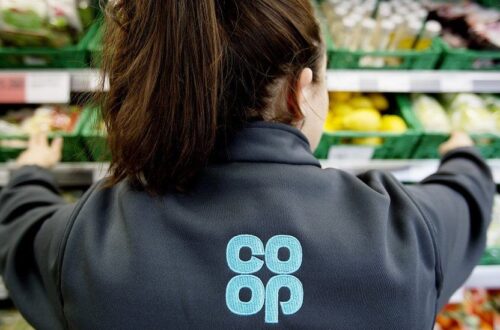Our ethical grocer of the week is Target. Target is a general merchandise retailer with stores in all 50 U.S. states and the District of Columbia. Target has made their way onto our ethical grocer’s list because of the amazing things they’ve been doing to reduce their footprint.

Sustainable Operations
First, Target has more than two million smart LED ceiling fixtures in place across nearly all 1,800-plus Target stores nationwide. This equates to approximately 470 million kilowatts (kWh) of energy each year. It’s enough to power nearly 40,000 homes or to reduce GHG emissions by an amount equal to removing 70,000 cars from the road annually.
More impressive is that Target has committed to sourcing 100 percent renewable electricity for their domestic operations by 2030 and 60 percent by 2025. To that end they have substantially expanded their solar program. Specifically, Target has installed over 25 megawatts (MW) of rooftop solar at 34 new sites. This has increased their total capacity to more than 229 MW across more than 470 completed projects.
If that’s not impressive enough Target has still taken additional steps towards sourcing 100 percent of their electricity from renewable sources. They have signed two new power purchase agreements: 89 MW of solar energy from the Sand Fork Solar Project in Texas and 79 MW of wind energy from the Lone Tree Wind Project in Illinois.
Then, perhaps you have beared witness to Target’s implementation of innovative sustainable site designs. If your local Target has recently been renovated it wasn’t for the purpose of a stylistic overhaul. Using sustainable designs, materials and technologies, in 2019 Target successfully completed the sustainable remodeling of all of their locations.

Responsible Sourcing
Target has also been very focused on sourcing raw materials sustainably. Most noteworthy has been their efforts in responsibly sourcing palm oil. Target honored their commitment for the palm oil used in their brand products to be traceable and sustainably sourced by the end of 2018. By the end of 2018 thirty-eight percent of palm oil in the products covered by their commitment was physically certified through the Roundtable on Sustainable Palm Oil’s (RSPO’s) mass balance and segregated supply chain
models, and the remaining 62 percent was covered by RSPO’s PalmTrace credits.
Target has also committed to replacing conventional polyester with polyester made from recycled plastic in Target-owned brand apparel, accessories and home products. In 2018, Target launched Made By Design home furnishings using recycled polyester.

Circular Solutions
Lastly, Target has been finding new ways to support a more circular business model in the way of more circular designs, fashion, packaging, trade-in programs and operational practices. So Target makes material choices that utilize renewable, recycled, nontoxic sustainable materials that can be continuously looped back into the system.
To make it easier for guests to dispose of items they no longer need in a sustainable manner Target hosts trade-in events. To date, these events have resulted in the collection over half a million used car seats. They have also teamed up with the company Waste Management to re-purpose the more than 7.4 million pounds of recycled materials they have collected.
On their mission towards becoming a zero waste company Target has implemented its sustainable, closed-loop hanger reuse program that has been in operation since 1994. This program reused enough hangers in 2018 to circle the globe five times (which is equivalent to 130,241 miles). Also, through their partnership with Feeding America, from 2017 to 2018 Target donated more than 89 million pounds of food, which is the equivalent of 74 million meals.
Overall, Target has truly honored their commitment to using resources responsibly and designing their operations, products and services to be sustainable and circular. They still have quite a few goals and commitments. Nonetheless, we look forward to seeing them fulfill all of them. As well, we anticipate the implementation of future innovations that Target will undoubtedly pleasantly surprise us with in the near future.
What do you think of our ethical grocer of the week? Did you know of their ethical grocer practices? Are you impressed? Why or why not?





